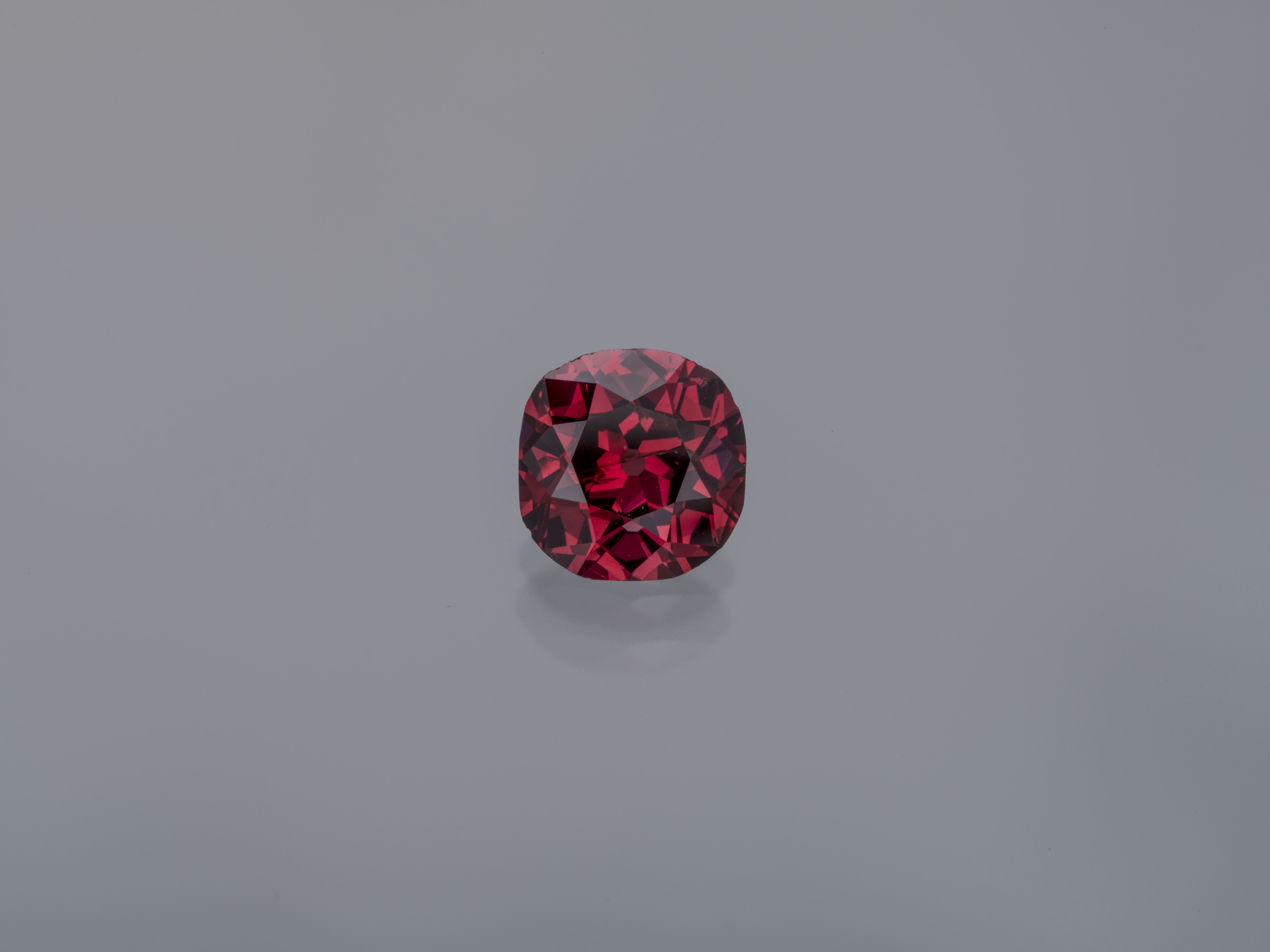The Winston Red Diamond, an exquisite 2.33 carat Fancy red diamond - one of the finest in the world.
Smithsonian Acquires One of the World’s Largest “Fancy Red” Diamonds

The Winston Red Diamond, an exquisite 2.33 carat Fancy red diamond - one of the finest in the world. Photo by Robert Weldon, courtesy of Ronald Winston.
The Smithsonian’s National Museum of Natural History will unveil the Winston Red Diamond and Winston Fancy Color Diamond Collection Tuesday, April 1—an extraordinary showcase of some of the world’s rarest and most dazzling gems.
The breathtaking diamonds were gifted to the museum by Ronald Winston, the son of distinguished jeweler and gem collector Harry Winston. In 1958, Harry Winston donated the iconic Hope Diamond to the Smithsonian, laying the foundation for the National Gem Collection. Now, the Winston Red Diamond and Winston Fancy Color Diamond Collection will be featured in the museum’s Winston Gallery, offering visitors the rare opportunity to witness one of the finest collections of fancy color diamonds ever amassed.
“This ranks among the most significant gifts ever received by the Smithsonian,” said Kirk Johnson, the Sant Director of the National Museum of Natural History. “The Winston diamonds are unprecedented in their beauty and rarity, and we are thrilled to welcome them as additions to our National Gem Collection. We extend our gratitude to Ronald Winston for making this gift to the nation possible.”
Natural red diamonds are among the rarest gemstones on Earth, and the Winston Red Diamond stands out as exceptional. At 2.33 carats, it ranks among the largest diamonds ever bestowed with the coveted “Fancy red” color grade by the Gemological Institute of America (GIA). Researchers estimate that less than one in 25 million diamonds is a Fancy red, and the Winston Red Diamond is one of the most exquisite in existence.
“The red diamond is the highlight of my career, and I have never seen anything else like it,” Ronald Winston said. “This donation to the museum represents my life’s achievements in this domain, and I am so happy to share this collection with the Institution and the museum’s visitors.”
While some colorful diamonds get their pigmented appearance from atomic impurities in their crystal structure, the Winston Red Diamond’s striking crimson hue is the product of extremely high pressure and temperature conditions deep within the Earth that strained and altered the crystal. The diamond features an old mine brilliant cut, a style that predates the round brilliant cut used in engagement rings today. With fewer, larger facets, this distinctive cut suggests the stone was fashioned before the mid-1900s. A study on the science and history of the Winston Red Diamond is forthcoming in the spring 2025 issue of Gems & Gemology, the quarterly professional journal of the GIA.
“In this collection, we have diamonds in colors I could never have dreamed of,” said mineralogist Gabriela Farfan, the Coralyn W. Whitney Curator of Gems and Minerals. “These gems give us the opportunity to share with our visitors the full range of colors in which diamonds occur.”
The Winston Red Diamond will be displayed alongside 40 other gems from the Winston Fancy Color Diamond Collection. The diamonds will be arranged in a radiant rainbow of color, featuring every shade imaginable from deep teal to soft peach.
The Winston Red Diamond and Fancy Color Diamond Collection are the result of 60 years of dedicated acquisitions by Ronald Winston. Alongside the Hope Diamond, the new display will honor the legacy of the Winston family and showcase the brilliance and rarity of these exceptional gems.
Note to editors: Members of the news media interested in attending the public unveiling April 1 should contact the museum’s press office in advance (contact information is provided above).
About the National Museum of Natural History
The National Museum of Natural History is connecting people everywhere with Earth’s unfolding story. It is one of the most visited natural history museums in the world. Opened in 1910, the museum is dedicated to maintaining and preserving the world’s most extensive collection of natural history specimens and human artifacts. The museum is open daily, except Dec. 25, from 10 a.m. to 5:30 p.m. Admission is free. For more information, visit the museum on its website and blog and on Facebook, Twitter and Instagram.
# # #
SI-48-2025
Randall Kremer
202-360-8770
Emma Saaty
202-633-0825
saatyema@si.edu
Jack Tamisiea
202-215-6195
tamisieaj@si.edu






